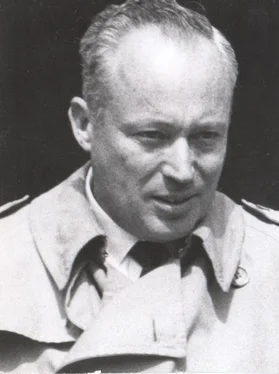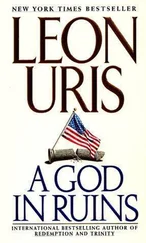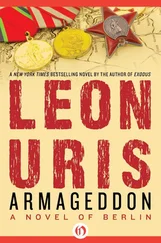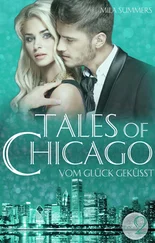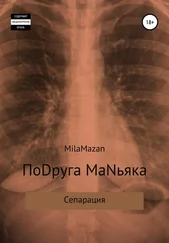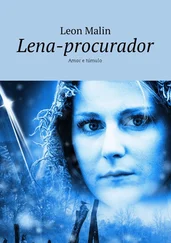“No one has accused you of that.”
“Simon, when the ghetto was started we had five hundred people in Warsaw. There are fifty-two of us left I want you to know that I personally voted to remain. But ... as their leader, I am obliged to take them out to the forests.”
“I figured it was that way.”
“Eleven of my people have decided to remain with you. We have also voted to leave you half our guns and eighty per cent of our ammunition. You’ll find it all in our bunker.”
He extended his hand. Simon shook it. Samson Ben Horin, a rebel among rebels, headed quickly for his bunker.
In ten minutes the forty-one remaining Revisionists were in the main sewer line under Gensia Street. They passed near Wolf’s Franciskanska bunker, under the Brushmaker’s compound, and they were beneath the wall. Every ten yards Samson flicked on his flashlight for a two-second bearing. A chain, hand to hand, moved silently.
The light found the barbed-wire trap.
Five men with wire cutters bit their pliers into the barrier and worked it apart slowly.
Samson peered at his watch. It was going too slowly. It would be light in fifty minutes. “Hurry,” he whispered.
“It’s very thick.”
“Hurry!”
They grunted as their rusty instruments tried to break the wire. Samson flashed his light again. They were only a third of the way through. He pushed past the wire-cutting team and with his hands squeezed the accordions flat. The barbs tore his flesh in a dozen places, but he batted at the wire until there was a partial clearance. They slugged through. The wire ripped their flesh and their clothing and they were bloodied and in pain.
Overhead, a Polish Blue policeman patrolling the area was drawn to the manhole by foreign sounds. He knelt and lay his ear against the manhole, then darted off to the Citadel gate only a block away, where the Wehrmacht had a camp.
“There are people in the Kanal. I’m sure of it. I could hear them grunting.”
The last of the Revisionists passed the entanglement. Their bloody legs were washed with sewage. The manhole cover behind them clunked open. A blasting light probed in. German voices! The Revisionists flattened against the slimy side of the bricks, just out of reach of the beams.
“See? Some of the wires have been cut!”
“Get a ladder!”
Samson was dizzy. Simon’s warning about going through an arterial flashed through his mind. Trapped in a black fetid coffin. Oh God! He could feel the tremors of fear running up and down the line. Stay? Fight when they come into the sewer after us? Run back to the ghetto? Bolt for the river?
“Let’s go, we can’t stay here!” He pushed on down Franciskanska Street, slushing as fast as his feet could hold in the slime and muck. Samson wanted to flash his light to study the map and find a small connecting Kanal, but there was no time to stop. Two mains converged. Freta Street. Large intersection. We are halfway there. The sewage ran swiftly.
Behind them they could hear the Germans lowering a ladder and they could see a crisscross of lights searching for them.
“We have to change our course,” Samson said.
“No.”
“Yes, I say. Up Freta Street.”
“No. We won’t make the river.”
“Come on. Up Freta Street!”
“Samson!” someone shrieked at the end of the line.
“Samson! Poison gas!”
Samson turned on his flashlight and saw the billows of smoke rolling at them.
There! A built-in iron ladder leading up to the street! Coughing, screaming at the end of the line! Samson climbed the ladder and put his shoulder against the manhole and shoved the lid off. He poked his head out, then squirted onto the street. Two, three, four, five, six, seven, they fled after him.
Blinding lights!
Red streaks of tracer bullets from an arc of German machine gunners shot them down. Some scampered back to the sewer and were shot down the hole into the poison gas. And then, after a few more shattering screams as the gas converged from four directions, it was still.
The long-sought German breakthrough came just before dawn on the eighth day with the destruction of the Revisionists whose attempt to break down a main Kanal proved as foolhardy as Simon Eden had feared.
On the eighth day the Germans roared into the ghetto, inspired by the victory. It had had a strange reaction on the Jewish Fighters. It brought to them a full and final realization that there was no escape, that the fight would have to be fought to the very end on this ground. The Jews turned savage, hurling themselves into German ranks as living grenades and torches. Cornered, out of ammunition, they fought with rocks and clubs and bare hands.
Each step the Germans took into the central area, they paid more heavily. The Jews were on top of them, behind them, beneath them, and they fought like maniacs.
On the eighth day they drove the Germans out.
The calculated concealment of news of the uprising burst apart. The word rolled over the length and breadth of Poland.
Jews have rebelled in the Warsaw ghetto!
Jews have been holding against onslaught after onslaught for over a week!
Tales of the fanatical Jewish courage dribbled out. The myth of Jewish cowardice was burst.
Berlin was shocked.
Jews fighting, routing the Elite Corps! It was catastrophic, a humiliation as bad a propaganda defeat as Stalingrad was a military defeat.
On the ninth day Funk mounted his most furious assault, using six thousand troops, and at the end of the ninth day he received his officers, who babbled stories of yet another defeat.
“Herr Oberführer, they strike like phantoms!”
“And you strike like cowards,” Funk shouted. “You disgrace the SS, the Fatherland. You disgrace our Führer, Adolf Hitler.”
Funk threw them all out except Horst von Epp. He loathed the man personally but had to rely on him more and more in the past days. Von Epp could make up the most magnificent excuses.
Funk sat at his desk to write his report. Six hundred Jews had been taken out of the ghetto on this, the ninth day. In all, only eight thousand removed in ten days and most of them from the uniform factory. There were still over thirty thousand of them hidden, and it was getting more difficult to locate them each day. At this rate it could take forever. His promise of four days to liquidate the ghetto was haunting him like a joke—like Goring’s promise that no bomb would drop on Germany. He could sense the disdain of the officers. No, they would not dare replace him, for that would be admission that the Jews had defeated the SS.
Horst concentrated heavily on which woman to bring in for a weekend. Alfred Funk wrote his daily report. The report was concise and boasted of progress which had not been made and exaggerated enemy strength and expanded the myth of a large army of Polish bandits helping the Jews. Crisp, dull, military. Copies to Police General Kruger in Krakow, to Globocnik in Lublin, and to Himmler. Ultra-secret.
Horst walked over to him in a turmoil between a redhead and a blonde and lifted the report and scanned it. “Have you ever heard of the Ass of Balaam, Alfred?”
“The what of what?”
“The Ass of Balaam in the Bible.”
“Of course not.”
“The Ass of Balaam attempts to curse the sons of Israel and ends up praising them. I think the Americans call it a left-handed compliment.”
“Must you always talk in riddles?”
“Look at these phrases in your report You refer to the ‘enemy.’ Since when do we admit the Jews are a military enemy? And here—‘Jewish disregard for death and the unshakable decision to resist’—why don’t you recommend we decorate them with Iron Crosses?”
Funk took the report and tore it in half. “I’ll do it over.”
Читать дальше
